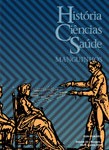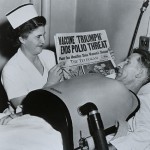By Lee Hiltzik| Rockefeller Archive Center

Photo Essay: Mexico and the Launch of the Green Revolution. Rockefeller Archive Center
Since the RAC’s opening in 1975, many scholars have used the records of the Rockefeller Foundation for their studies of what is regularly called the “Green Revolution” of the postwar era and the role that philanthropy has played in its development. Much of this research has focused on the innovations and impact of new seed strains and technologies on food production or, more broadly, on the global implications of these endeavors.
In her research report, Gabriela Soto Laveaga concentrates on different aspects of the RF’s activities in this arena. “Designing Agricultural Programs in Mexico and India: Challenges, Successes, and Missed Opportunities” looks at the impact of these developments on domestic science and rural development in Mexico. Her report also discusses how the RF, trying to build on its experiences in Mexico for new agricultural initiatives in India, discovered that its assumptions did not necessarily match up with local conditions and needs or with the government’s perspective on its efforts. Gabriela Soto Laveaga is a professor of the history of Science and the Antonio Madero Professor for the Study of Mexico at Harvard University.
See in HCS-Manguinhos:
Scientific Partnerships in Brazil and the Malaria Service of the Northeast Gabriel Lopes, postdoctoral researcher at Fiocruz, presents how Rockefeller Foundation’s International Health Division collaborated closely with Brazilian entomologists in the fight against malaria in Brazil.
Los proyectos de investigación nutricional de la Fundación Rockefeller en México Durante 1945, un oficial de la “International Health Division” de la Fundación Rockefeller fue enviado a México para hacer varios viajes de exploración con el objeto de encontrar sitios idóneos para ampliar los proyectos de investigación nutricional que la fundación filantrópica tenía en el país.
The importance of food for historians In the editor’s letter of the most recent issue of HCS-Manguinhos (HCSM, v. 28, n. 4) the journal’s scientific editor, Marcos Cueto, highlights the main themes and approaches in the historiography of food in Latin America.
Report of the medical commission to Brazil: Rockefeller Foundation, 1916 This 1916 report features a comprehensive analysis of education in Brazil with a special focus on the medical profession.
Race and the Rockefeller Foundation From 1927 to 1942, the Rockefeller Foundation ran a tuberculosis commission in Jamaica. This paper explores the role that race played in it.
Photography and History of Medicine August 19th, World Photography Day. A selection of articles and blog posts on photography from the history of medicine.
Race in science: a paradoxal idea Evelynn Hammonds, Chair of the Department of History of Science at Harvard University, presents some of the most important works and approaches that marked the historiography of race, specially in the United States.







